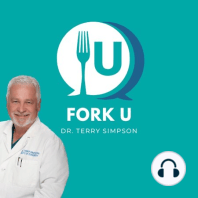27 min listen
Fish Oil and Atrial Fibrillation
ratings:
Length:
3 minutes
Released:
Sep 25, 2021
Format:
Podcast episode
Description
Fish oil is the bomb - Greenland Yupik and the rise of fish oilFish oil first became a "hot topic" when a 1980 publication showed that Yupik in Greenland had a lower incidence of cardiovascular disease.Their paper concluded, "The rarity of ischemic heart disease in Greenland Eskimos may partly be explained by the antithrombotic effect of the long-chained polyunsaturated fatty acids, especially eicosapentaenoic acid prevalent in diets rich in marine oils." (Bang HO, Dyerberg J, Sinclair HM. The composition of the Eskimo food in north western Greenland. Am J Clin Nutr. 1980 Dec;33(12):2657-61. doi: 10.1093/ajcn/33.12.2657. PMID: 7435433).This led to more scientific bodies looking at the evidence for fish oil, and ultimately omega 3 fatty acids, and if it did reduce the incidence of cardiovascular disease. And even 22 years after the publication of that study, the American Heart Association put out a statement that fish oil was protective against cardiovascular disease. (Kris-Etherton PM, Harris WS, Appel LJ; American Heart Association. Nutrition Committee. Fish consumption, fish oil, omega-3 fatty acids, and cardiovascular disease. Circulation. 2002 Nov 19;106(21):2747-57. doi: 10.1161/01.cir.0000038493.65177.94. Erratum in: Circulation. 2003 Jan 28;107(3):512. PMID: 12438303)The other predictable tract this led on was the inevitable marketing of fish oils in the supplement industry trying to sell fish oil capsules, from whatever source, as a "must take" to prevent the number one killer in the United States. As with most supplements, being unregulated, they would make claims that their oil was better than others - because it came from krill, or it was vegan-based, or from cod, or pick something that sounds like it can be marketed. Some would claim their fish oil was more pure omega 3 fatty acids. Radio and television spots were secured, and when it was confirmed that the "good cholesterol" or HDL was indeed raised by omega 3 fatty acids it raised their game and intensity of marketing.Back in the world of science, testing continued and the results that came back didn't match the conclusions.Some papers would conclude that fish oil didn't produce a significant decrease in first time cardiac events but might help prevent secondary cardiac events (Yokoyama M, Origasa H, Matsuzaki M, Matsuzawa Y, Saito Y, Ishikawa Y, Oikawa S, Sasaki J, Hishida H, Itakura H, Kita T, Kitabatake A, Nakaya N, Sakata T, Shimada K, Shirato K; Japan EPA lipid intervention study (JELIS) Investigators. Effects of eicosapentaenoic acid on major coronary events in hypercholesterolaemic patients (JELIS): a randomized open-label, blinded endpoint analysis. Lancet. 2007 Mar 31;369(9567):1090-8. doi: 10.1016/S0140-6736(07)60527-3. Erratum in: Lancet. 2007 Jul 21;370(9583):220. PMID: 17398308).In 2004 the Cocharane database looked at 48 randomized controlled trials and concluded that taking fish oils did not reduce mortality from cardiovascular disease. It also concluded that it didn't matter where the fish oil came from, fish or plant sources, or other sources. This, as you might imagine, throws a monkey wrench into the statement by the American Heart Association that fish oils were good for you, especially coming two years later.Marketing moves faster than medicine, so while doctors and scientists were working to find out why there were inconsistent results, the marketing of fish oils continued to expand. Given that there was no regulation in the supplement industry, they continued to market the "benefits" of their product. By 2020 the sales of over-the-counter fish oil products became to a SIX BILLION dollar industry, (https://www.grandviewresearch.com/industry-analysis/omega-3-supplement-market).Scientists worked at looking at the different components of dietary, or essential fatty acids. Because the literature was confusing, and the American Heart...
Released:
Sep 25, 2021
Format:
Podcast episode
Titles in the series (52)
Bill Lagakos and The Trouble With Diets by Fork U with Dr. Terry Simpson
